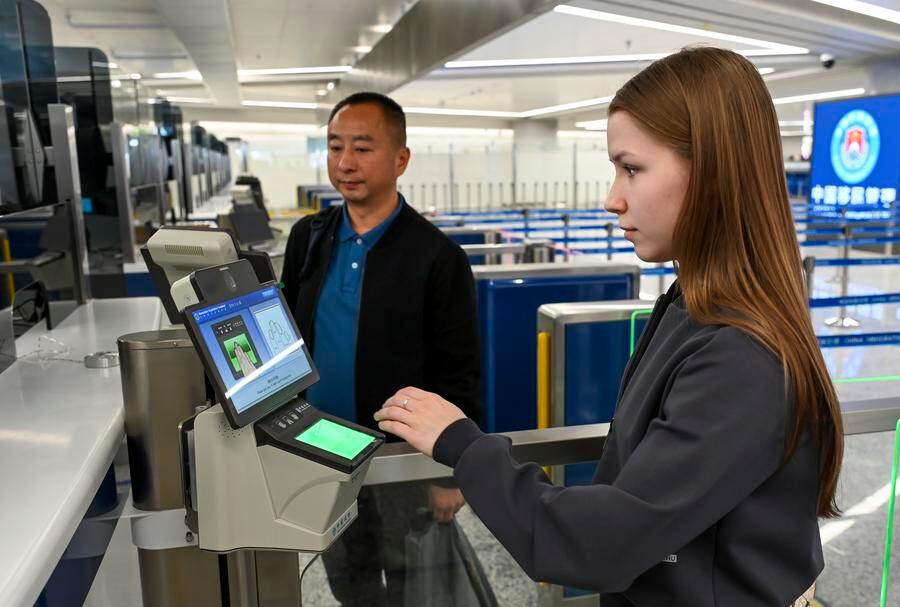
The Chinese government is accelerating the revitalization of its tourism industry by significantly enhancing shopping convenience for foreign tourists. China Media Group (CMG) announced on the 24th that since the introduction of the "Further Improvement of the Exit Tax Refund System and Expansion of Inbound Consumption Measures," jointly released by various central government departments in China, foreign tourists' shopping demand has significantly increased. This policy goes beyond merely stimulating consumption, aiming for the international dissemination of Chinese culture and goods.
Building an Innovative Tax Refund System
Shanghai is leading the change in the implementation of this policy. Since its enactment, over 60 new designated tax refund stores, where immediate tax refunds are available upon purchase, have been added, making the shopping experience even more convenient for foreign tourists. Additionally, three new dedicated foreign tourist refund centers have opened, providing quick and easy refund procedures.
Cao Huijun, Deputy General Manager of the Operation and Management Department at No. 1 Department Store Commercial Center, explained, "With the improvement of the exit tax refund system, the minimum refund amount has been reduced from 500 yuan to 200 yuan, and the credit card guarantee period has been extended from 17 days before departure to 28 days, allowing more foreign tourists to benefit." This change ensures that even small purchases qualify for tax refunds, increasing shopping accessibility.
Notably, the nation's first automatic refund dispenser installed in the Nanjing East Road commercial district is a prime example of service improvement through technological innovation. This machine automatically recognizes passport information and scans receipt QR codes, helping tourists easily complete refund applications. It provides fast and efficient service even during peak hours, processing over 400 cases in its first month and averaging over 10 uses per day, proving its effectiveness. This automated system helps tourists navigate the refund process conveniently without language barriers.
Expanding Refund Benefits to Diverse Stores
Another key aspect of this policy is the significant expansion of tax refund eligible stores. In the past, tax refund benefits were mainly limited to international luxury brand stores. Now, the benefits have been extended to various types of stores, including trendy Chinese brands, traditional long-standing shops, cultural and creative product stores, souvenir shops, and local specialty stores. This strategy aims to encourage foreign tourists to experience China's diverse products and culture, thereby contributing to the revitalization of China's domestic market.
For example, tourists can now receive tax refunds at traditional craft shops or souvenir shops featuring local characteristics, providing them with a wider range of shopping choices. This offers an opportunity to experience China's unique culture and craftsmanship beyond mere consumption and is expected to positively impact the development of traditional Chinese industries.
Tangible Results and Future Prospects
The positive effects of this policy are clearly evident in the numbers. According to CMG, in just one month since the policy's implementation, Shanghai's exit tax refund-related sales increased by 86% compared to the same period last year, and actual refund amounts grew by 77%. These figures demonstrate that the policy has successfully stimulated the shopping interest of foreign tourists.
Through this improvement in the tax refund system, the Chinese government aims to not only attract more foreign tourists but also strengthen its position as an international consumption hub and enhance its competitiveness in the global tourism market. The simplification of tax refund procedures and the expansion of their scope will provide a more attractive shopping environment for foreign tourists, which will contribute significantly to China's tourism revenue growth and domestic economic revitalization in the long run.
Furthermore, China is focusing on improving the "quality of consumption" through these institutional reforms. Beyond simply selling more goods, by encouraging foreign tourists to experience various Chinese cultural products and services, an effect of strengthening China's soft power is also expected. It remains to be seen what changes China will bring to the global tourism market through these policy efforts.
[Copyright (c) Global Economic Times. All Rights Reserved.]






























